Event Reports
Research Integrity Symposium "Responding to Emerging Research Misconduct and Promoting Integrity in Research Activities" (31 Oct '24)

Throughout the lectures, the speakers shared insights on the evolving research environment, latest trends in research misconduct, and measures to uphold scientific integrity. During the panel discussion, participants examined the challenges and prospects of research ethics education and the development of an optimal research environment, incorporating perspectives from actual research activities. This report presents key points from the lectures and the panel discussion.
Guest Speech and Lecture: "Promoting Activities toward Research Integrity - Research ethics education, research misconduct, and related issues."
Director Katsuyoshi Okamura, Office for Research Integrity Promotion, Research Environment Division, Science and Technology Policy Bureau, Ministry of Education, Culture, Sports, Science and Technology(MEXT)
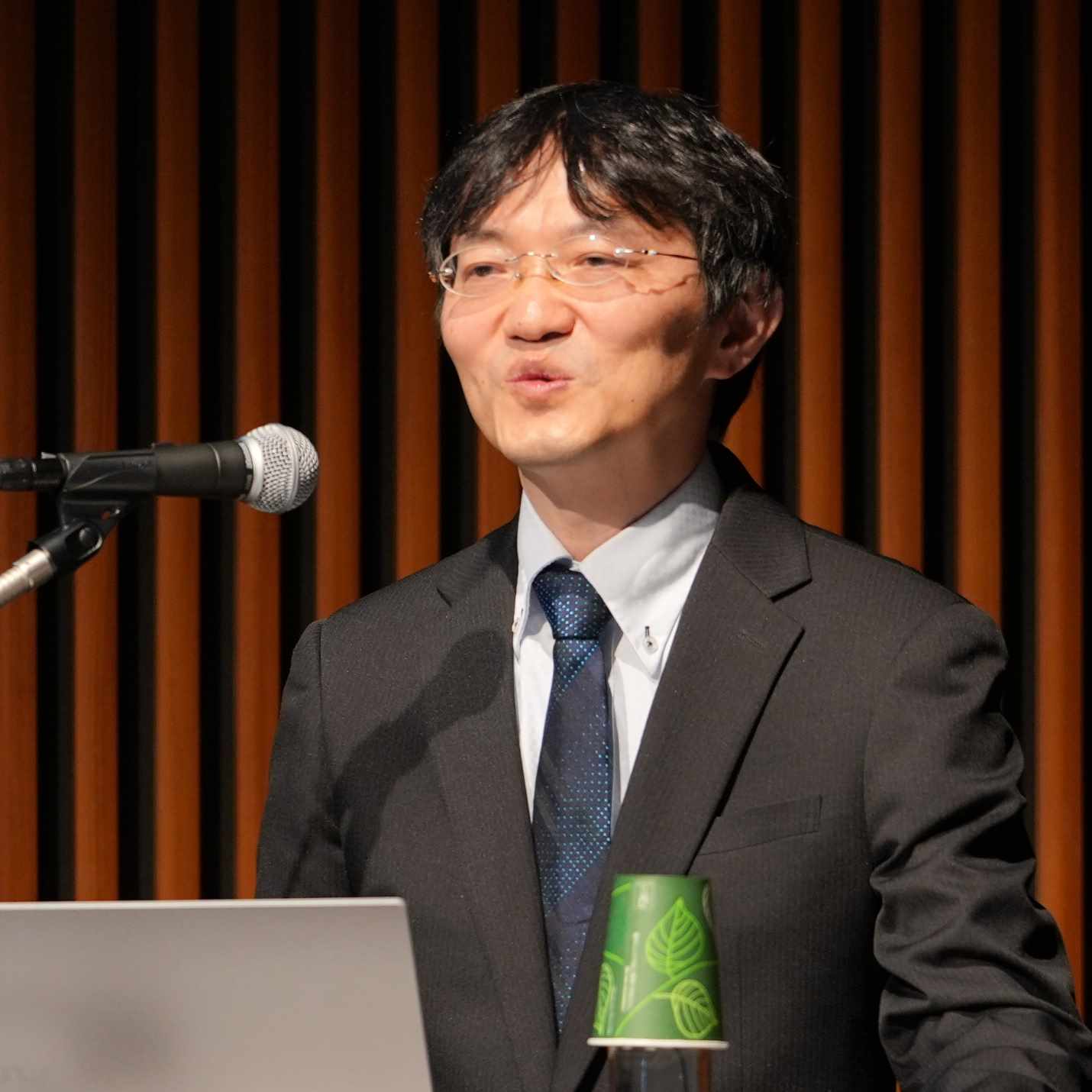
Mr. Okamura provided an overview of "Guidelines for Responding to Misconduct in Research" established by Ministry of Education, Culture, Sports, Science and Technology (MEXT), before presenting on the implementation status of initiatives based on these guidelines. Using the results of the FY2022 checklist compilation, he highlighted the state of research ethics education at various research institutions and the establishment of regulations addressing inappropriate practices beyond specific misconduct categories (fabrication, falsification, and plagiarism), such as duplicate submission and improper authorship. He noted that an increasing number of research institutions now classify these practices as research misconduct.
In addition, trends in research misconduct related to the MEXT funding were discussed, including the recognition and public disclosure of specific research misconduct.
Finally, with the advancement of open science and the FAIR Data principles, emerging trends were introduced that contribute to research integrity from a more systematic perspective beyond conventional approaches. These include the development of research data policies at national universities, the requirement to submit data management plans when applying for research funding, and advancements in AI. Emphasis was placed on the importance of considering these trends while promoting research integrity.
Lecture 1: "How to Convey Academic Integrity - Practices and Challenges in Research Integrity Education at Universities"
Assistant Professor (Lecturer) Koji Okabayashi, Life Science Center for Survival Dynamics, Tsukuba Advanced Research Alliance, University of Tsukuba
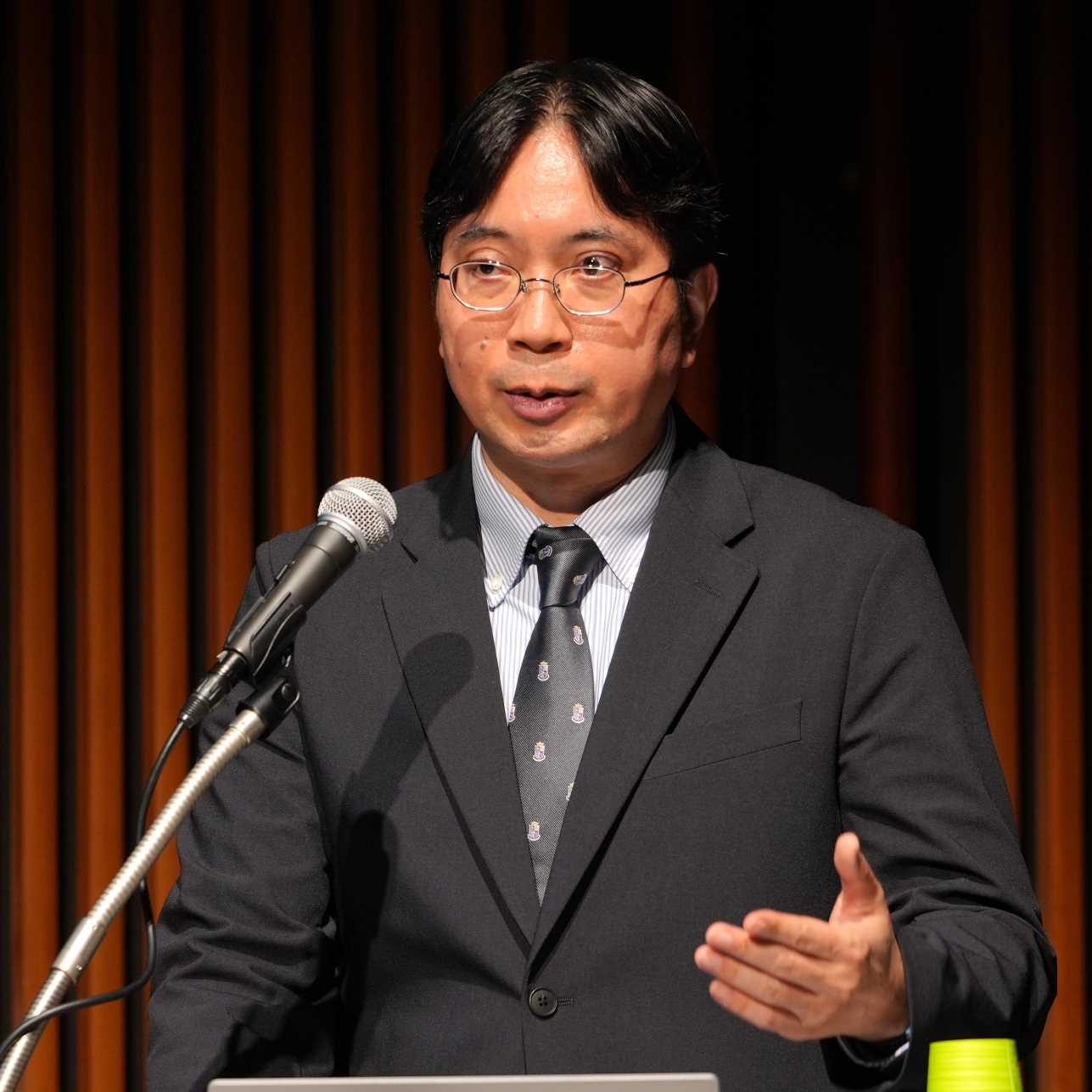
Koji Okabayashi
Drawing on his many years of experience in research ethics education at the University of Tsukuba, Prof. Okabayashi stated, "In research ethics education, it is important to reflect on the common sense of their own field and to have the experience of discussing things that are difficult to talk about." He also addressed specific Questionable Research Practices (QRPs) that may arise in research activities and discussed effective ways to communicate these issues to researchers and students.
Anticipated QRPs in Research Activities
Prof. Okabayashi divided research activities into four stages--A. Planning, B. Research and Experimentation, C. Manuscript writing, and D. Paper submission and peer review--and emphasized the importance of identifying potential problematic actions at each step. He stressed the need to prevent "behavior that could lead to research misconduct" resulting from mistakes or carelessness.
Specific examples included: A) intentionally ignoring the research of others during the planning stage, passing off others' ideas as one's own idea and exaggerating results or making misleading statements when applying for research funding; B) inconsistent experimental procedures or equipment adjustments and insufficient data management during the research and experiment stage; C) unnecessary citations and the manipulation of data and graphs to make them easier to read during the paper preparation stage; and D) multiple submissions, leaks of information during peer review, and manipulation of the results of requested additional experiments to make them appear more convenient. It was emphasized that, although these problematic behaviors are less likely to be formally accused as research misconduct, they have the potential to undermine the integrity and credibility of research. It was explained that understanding the characteristics of each field, preventing both careless and intentional misconduct, and maintaining integrity in research activities are essential. Furthermore, the importance of recognizing and sharing awareness of QRPs was highlighted. Rather than viewing them merely as inappropriate conduct, they should be recognized as Detrimental Research Practices (DRPs), necessitating ongoing discussions among researchers.
How Should "QRPs (DRPs)" Be Communicated to Researchers and Students? - Raising Awareness of QRPs in a Broad Sense
Prof. Okabayashi also mentioned that when discussing QRPs/DRPs to researchers and students, focusing solely on avoiding Fabrication, Falsification, and Plagiarism (FFP) may, paradoxically, increase the risk of engaging in QRPs. He stressed the importance of recognizing the diversity and scope of QRPs and stressed the need to consider not only the accuracy of data but also the potential harm to the integrity of research activities and the competitiveness of the research environment.
Finally, discussions on the current state of research ethics education, along with future challenges and goals, were structured into three key areas: the implementation of research ethics education, education for graduate students, and Faculty Development (FD) in research ethics.
First, regarding the implementation of research ethics education, it was noted that while the widespread adoption of e-learning has contributed to its institutionalization, the limited opportunities for interactive discussions remain a challenge, making it difficult to achieve a deeper understanding. Next, he noted that in graduate education, while group discussion-based learning that enables students to conceptualize specific research activities is regarded as essential, the challenge of accommodating large student cohorts remains. Furthermore, opportunities to cultivate awareness of social responsibility and enhance decision-making skills are needed. Finally, the discussion concluded that Faculty Development (FD) in research ethics education requires mechanisms that facilitate participation for busy faculty members, along with training programs in a discussion-based format to foster collaboration and self-critical thinking. Additionally, the development of well-balanced leadership in both education and research was highlighted as an important goal.
Lecture 2: "Addressing issues beyond specific research misconduct - Focusing on duplicate submissions, authorship, and peer review."
Professor Masaki Nakamura, Center for Education in Liberal Arts and Sciences, Osaka University
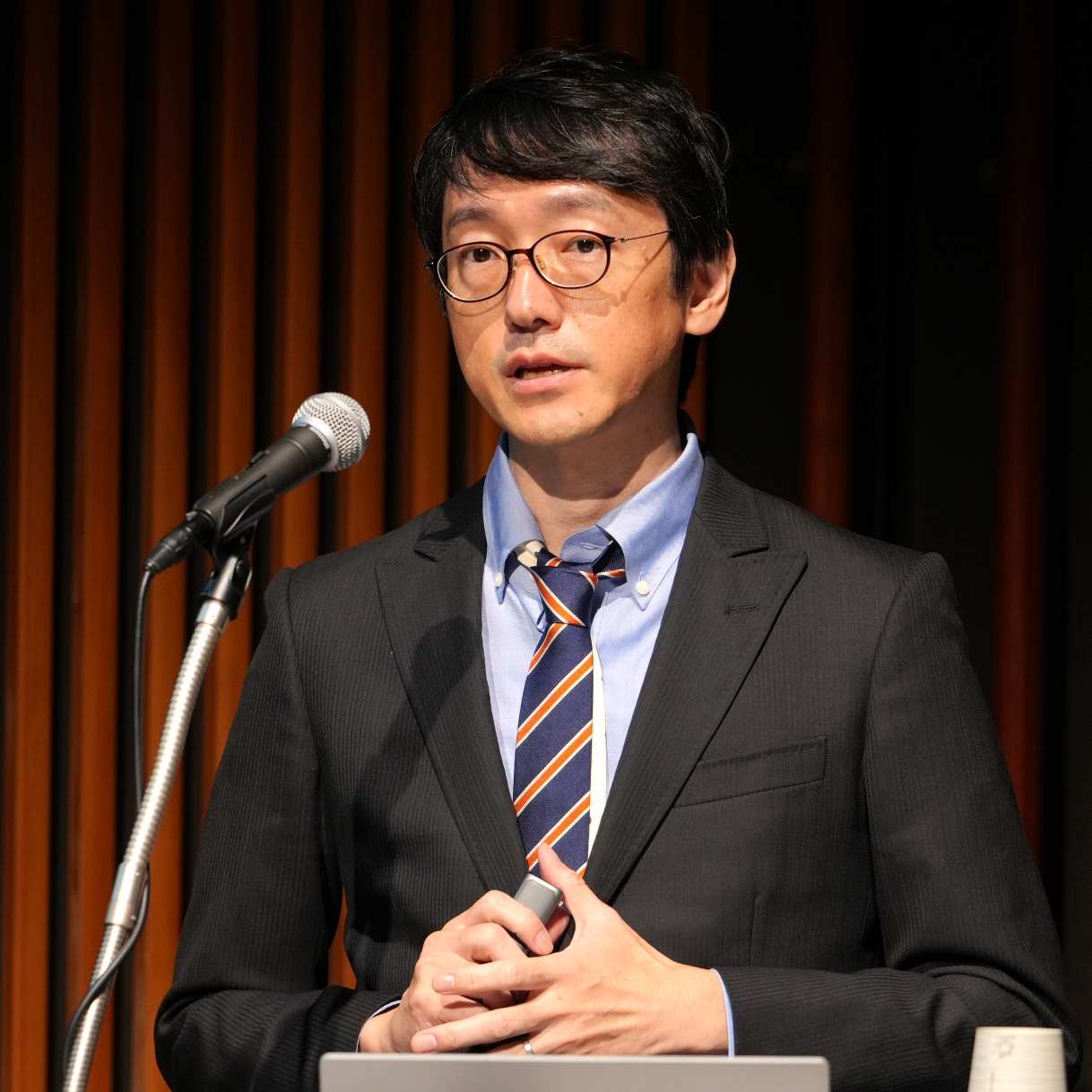
Prof. Nakamura has served as a member of the MEXT's expert committee on Promoting Activities toward Research Integrity, among other roles, and has been extensively involved in research and practice concerning the relationship between science, technology, and society. He has also led research projects on research integrity under the Japan Agency for Medical Research and Development (AMED) and JST. The lecture focused on issues beyond specific research misconduct, particularly duplicate submissions and inappropriate authorship. Using the results of the MEXT's FY2022 checklist analysis, the discussion illustrated how these issues are addressed in regulations at research institution. It was noted that while most research institutions either have specific regulations explicitly defining these two actions as misconduct or lack explicit provisions but have broadly interpretable rules, a considerable number of universities and institutions still do not have any such regulations in place.
About Duplicate Submissions and Duplicate Publications
As a specific example, he introduced a case in which a paper containing the same content as a proceedings paper was submitted as a regular journal article, was deemed a duplicate submission, and subsequently had its publication retracted. He then presented examples of submission guidelines related to duplicate submission and duplicate publication. He noted the importance of reviewing the submission guidelines of the relevant academic society before submitting a paper, as these regulations vary depending on the academic society and research field. Additionally, he presented the results of a 2022 survey conducted among academic societies, which revealed that duplicate submissions were overwhelmingly the most frequent issue encountered in academic journals over the past five years.
About Authorship
Regarding authorship, he explained problematic practices such as "gift authorship", where an individual is listed as an author despite lacking the necessary qualifications, and "ghost authorship", where a qualified individual is excluded from the list of authors. He also introduced the Committee on Publication Ethics (COPE), an organization composed of academic journal publishing groups, and its "Best Practices for Preventing Authorship Problems". To avoid authorship disputes, he emphasized the significance of clearly defining individual contributions using frameworks like "CRediT" and establishing agreements among co-authors at the outset regarding authorship criteria and acknowledgments.
In summary, the roles of each institution were re-evaluated, prompting reflection on "what each institution can do and what they should do".
- Universities and Research Institutes: Establishment of relevant regulations and guidelines for research ethics, along with the implementation of effective research ethics education. Additionally, ensuring a precise understanding of the current state of research integrity within the institution and fostering an environment that prevents misconduct.
- Government Organizations: Publicize and ensure the thorough implementation of guidelines. Verify that investigations into misconduct are conducted appropriately. Support research institutions in developing regulations and institutional frameworks through researching and disseminating domestic and international policies and initiatives.
- Academic Societies: Clarify relevant regulations and rules and provide education and awareness initiatives tailored to the research field. Further strengthen collaboration with other academic societies.
- Funding Agencies: Enhance the availability and quality of research ethics education materials and training opportunities in response to the mandatory implementation of research ethics education. Implement appropriate measures in cases of research misconduct.
Lecture 3: "Beyond Addressing Research Misconduct - Enhancing Research Quality and the Importance of Metadata."
Professor Satoshi Iimuro, Graduate School of Public Health, International University of Health and Welfare
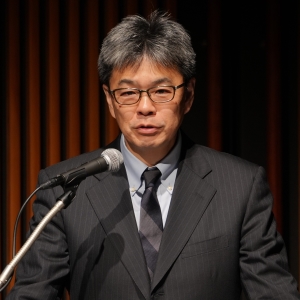
In his role as a research support specialist and a cardiovascular researcher, Prof. Iimuro has been actively involved in project and data management for numerous clinical trials. His primary research focus is on developing concepts and methodologies for ensuring "data reliability". In this lecture, he discussed research data management not only from the perspective of preventing misconduct but also as a means of enhancing research quality. Drawing from his own experiences and case studies, he provided insights into best practices for effective data management.
Regarding "Questionable Research Practices (QRPs)" in research activities, Prof. Iimuro stated, "QRPs exist on a spectrum, ranging from those that closely resemble Fabrication, Falsification, and Plagiarism (FFP) to those that are nearly aligned with Responsible Conduct of Research (RCR). Therefore, defining QRPs in a uniform manner is extremely difficult." It was pointed out that actions that veteran researchers "perform with good intentions" based on past experiences and customs may fall under QRPs. Considering this, he stressed the need to reassess approaches to research ethics education. He then noted that, assuming most researchers do not intend to engage in misconduct, simply making superficial appeals such as "Avoid FFP" or "Avoid QRPs" is insufficient. Instead, it is crucial to consider strategies for managing and mitigating FFP and QRPs effectively.
Prof. Iimuro introduced the "Fraud Triangle Theory", explaining that misconduct arises from the interplay of three key factors: "motivation", "opportunity", and "justification". He stated that among these three elements, "motivation" and "justification" can be addressed through research ethics education, while "opportunity" must be managed through effective data control. It was further explained that these efforts are only effective when research ethics education and research quality management function as two interdependent pillars, working in tandem to uphold research integrity.
Prof. Iimuro mentioned specific considerations regarding research data management, including the stages at which data is generated in research and the necessity of metadata. In particular, he stated that to effectively intervene in "opportunity", it is essential to adhere to the three fundamental principles of research data management: traceability, reproducibility, and process management. He stressed that achieving traceability and reproducibility requires not only managing the data itself but also ensuring the proper identification of metadata.
Metadata encompasses information such as the history of data generation and processing, details of outlier treatment, and regulations for data handling. He illustrated with concrete examples how metadata serves as a key element in ensuring research transparency. Process within the laboratory and advancing standardization and systematization is the first step toward achieving RCR. Furthermore, universities and research institutions play a crucial role in developing research infrastructure and must establish mechanisms that uphold integrity and transparency in the research environment across the organization, he stated. (From "Responsible Conduct of Research: A Guide to Managing Research Data")
Panel Discussion:
The panel discussion began with a topic presentation by Professor Fudano, followed by a discussion featuring the four lecturers, who had delivered lectures earlier. The panelists engaged in discussions and responded to questions from participants.
●Topic presentation: "Efforts to Promote Research Integrity in Foreign Countries
Professor Jun Fudano, Center for Higher Education Studies, Waseda University
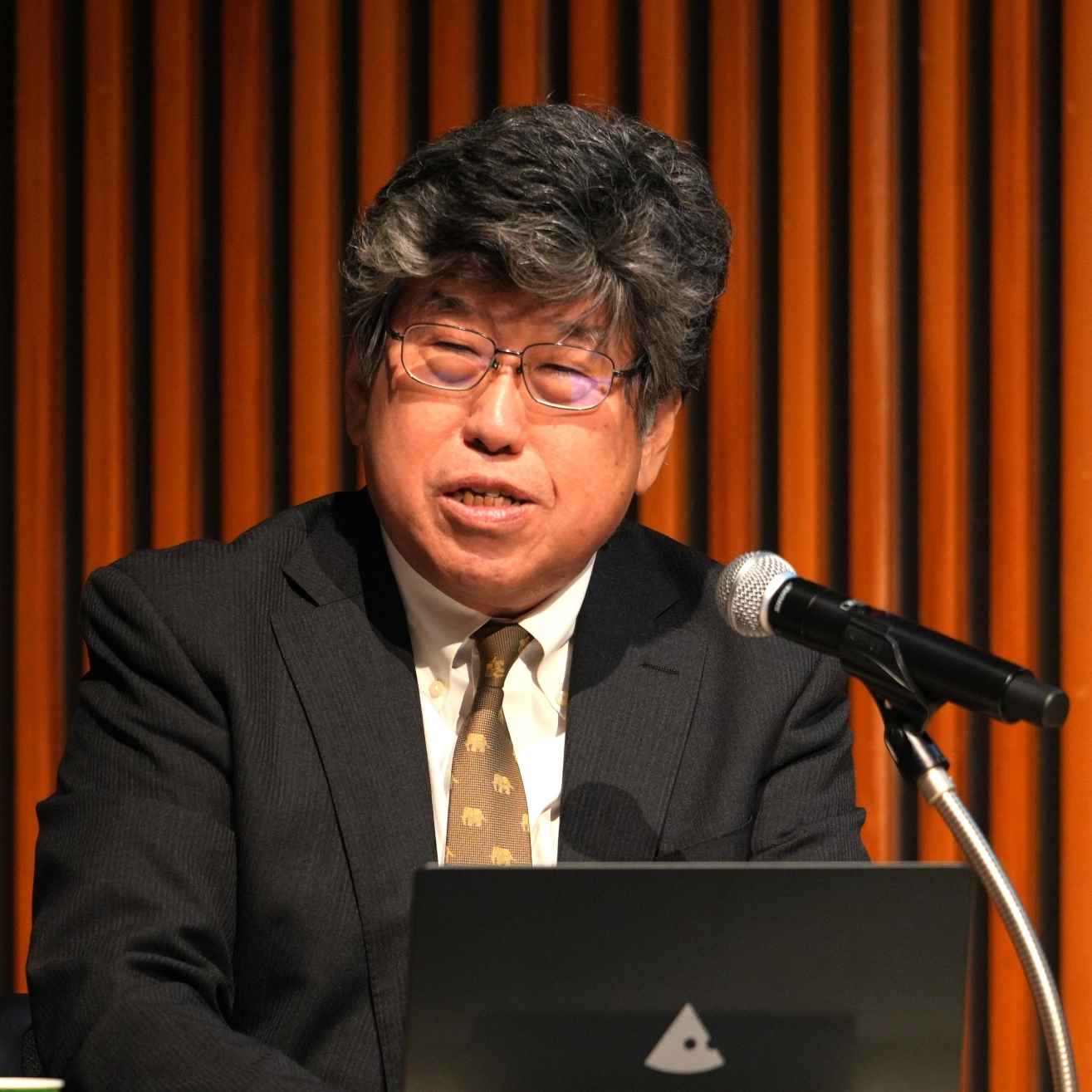
Prof. Fudano also serves as a Research Integrity Advisor for JST and the Japan Society for the Promotion of Science (JSPS), as well as a council member for the Association for the Promotion of Research Integrity (APRIN).
In his lecture, Prof. Fudano discussed the evolution of research integrity education in the United States. He highlighted how the focus has expanded from a narrow definition of "research integrity" to the broader promotion of "Responsible Conduct of Research (RCR)" and how the emphasis is shifting from educating individual "researchers" to enhancing the environment within "research organizations" and "research communities". He also introduced similar initiatives in Europe.
Addressing the current state and challenges of education for research integrity, he noted that research integrity education is often perceived as an add-on. In response, he emphasized "the need to motivate and incentivize researchers to actively engage in research integrity education" and put forward the following proposal: First, recognize and reward researchers who participate in research integrity education and demonstrate a commitment to research integrity in promotion and evaluation processes. Additionally, the purpose and value of research integrity education should be clearly conveyed. He emphasized that research integrity education should be seen not just as a means of instructing researchers, but as an opportunity to both prevent misconduct and enhance overall research quality. He also suggested that, if necessary, research integrity training should be integrated into existing mandatory training on research conduct, ensuring that it becomes a natural and inherent part of research activities. In addition, expectations for strong leadership among those responsible for research ethics education, as well as concerns over the shortage of specialized personnel in research integrity, he pointed out.
Discussion
During the discussion, the speakers reassessed the current state and challenges of research ethics education and Promoting Activities toward Research Integrity from multiple perspectives, including those of research institutions implementing integrity initiatives, researchers, the academic community, government, and funding agencies. Furthermore, considering the evolving research environment and the shifting scope of research misconduct, the discussion fostered a deeper awareness of issues related to best practices in research, resulting in a highly meaningful and insightful exchange.Survey: The participant survey received many positive responses, including the following comments:
"The explanations were very clear, and I especially appreciated the proposal that considered the burden on laboratory managers."
" It went beyond textbook discussions and addressed current topics in a clear and understandable manner."
"I want to enhance the importance of research integrity education, even at smaller universities."

Event report, Research Integrity Symposium "Toward Development of Responsible Research and Innovation" (17 Nov '23)

